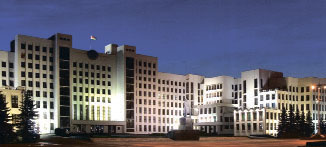Guided by the law on state forecasting, the proposed programme is based on the National Strategy for Sustainable Development until 2030, and inspired by the governmental programme for 2015, aiming to enhance the quality of life for the population.

Belarus’ Prime Minister, Andrei Kobyakov, has praised the concept’s goal of enhancing the country’s global competitiveness through modernisation of enterprises, raising the efficiency of production and logistics through innovation. He underlines, “We need to stimulate economic competitiveness wisely; competition and innovations are mutually supportive.” Of course, human potential should also be used to the uttermost.
Mr. Kobyakov is keen to see economic management evolve, bringing about better corporate management, improving training for executives and optimising the use of state property. He notes that privatisation isn’t always a guarantee of success and that each case should be decided individually.
In the production sphere, high-tech innovation and efficiency are watchwords of the programme, with focus on promoting the use of local resources. These approaches should be a priority at all levels: local and regional. Traditional manufacturing (enterprises in operation for at least a decade) boast huge potential, according to the PM, but may benefit from new management styles.
The service sphere is also ripe for development, stresses the PM, saying, “We’re a transit country yet are ranked only 99th out of 160 countries for logistical development. We are losing out on potential income from this activity.” He is keen to promote the Silk Road transnational transport corridor, as suggested by Chinese colleagues. He is convinced that progress would bring positive dividends in foreign trade turnover and is eager to ensure that the programme tackles potential obstacles to the growth of transport infrastructure, including expansion of aviation and rail electrification. He believes that new, science-intensive services with high value-added are the way forward, including educational, medical, consulting and information services.
Proposals voiced at a recent Government session will be taken into account in elaborating the concept.
By Vladimir Khromov











